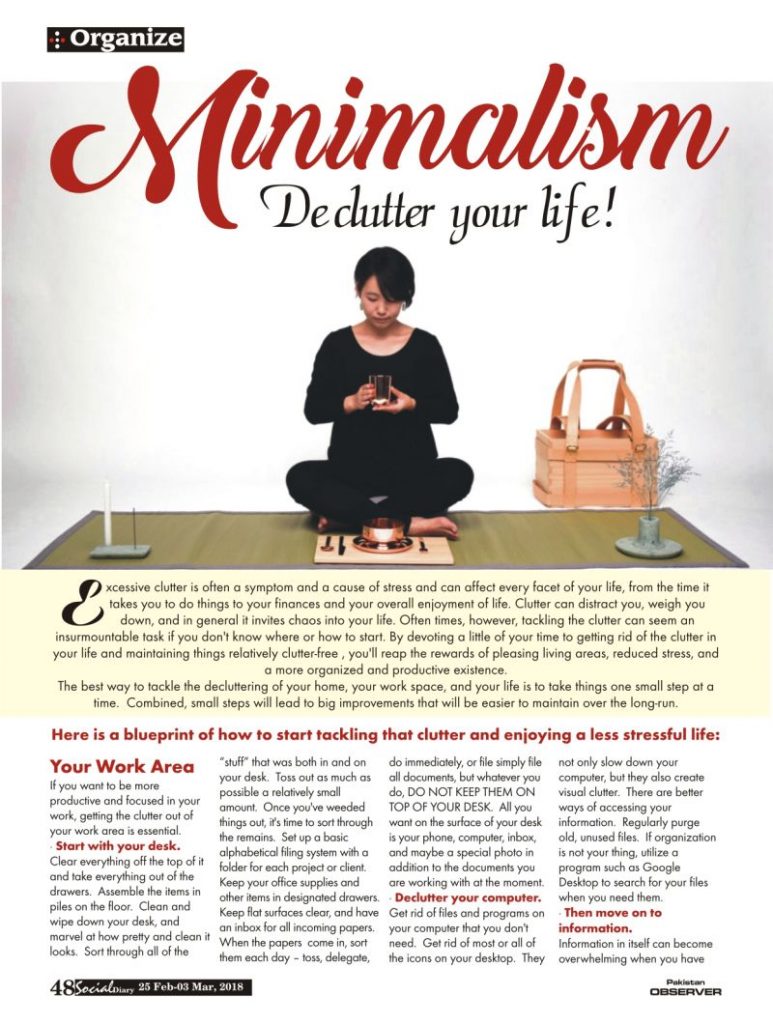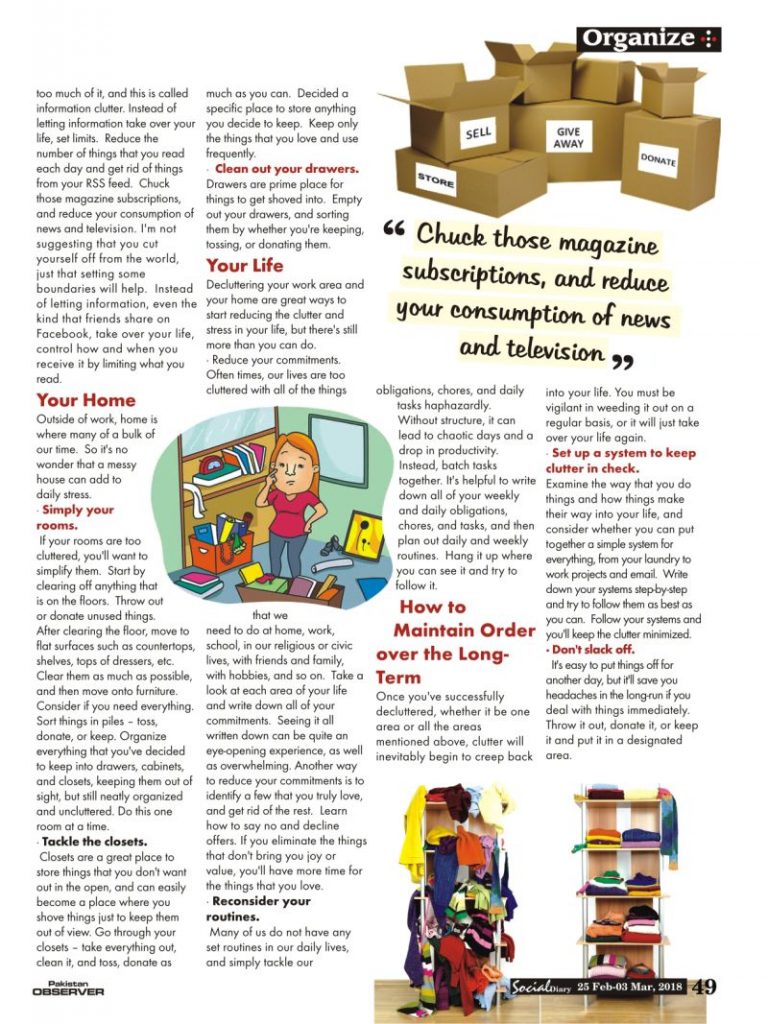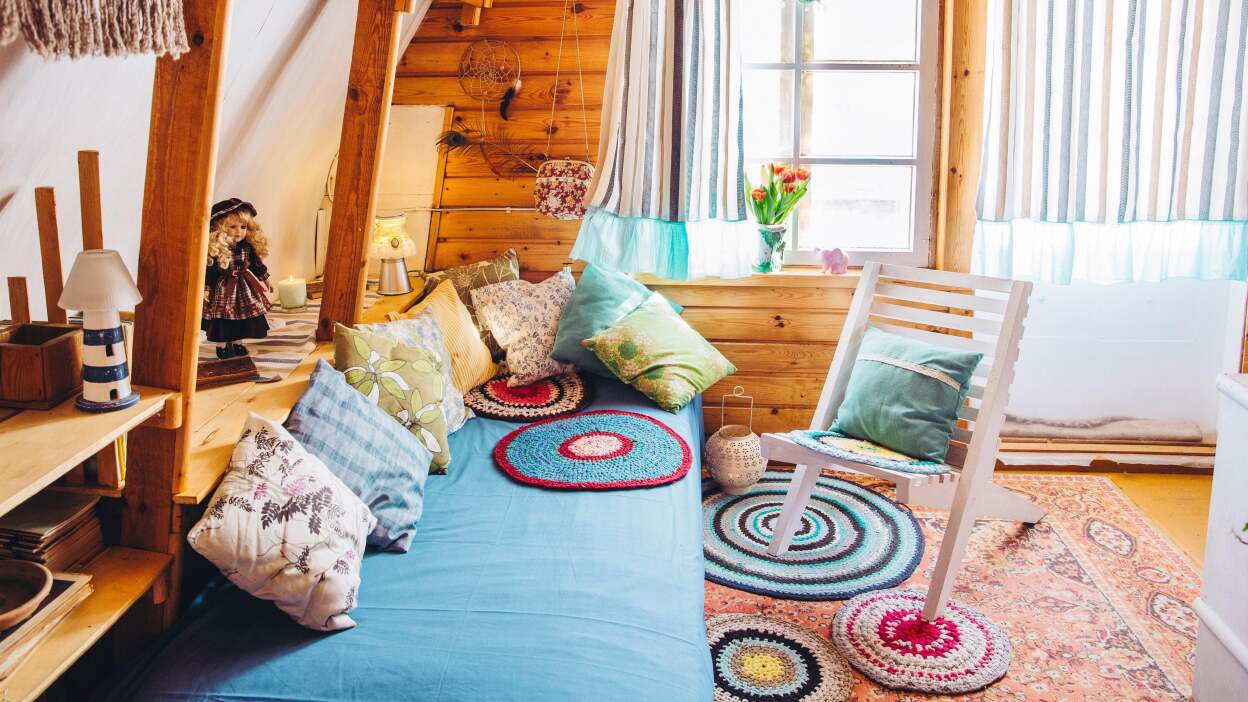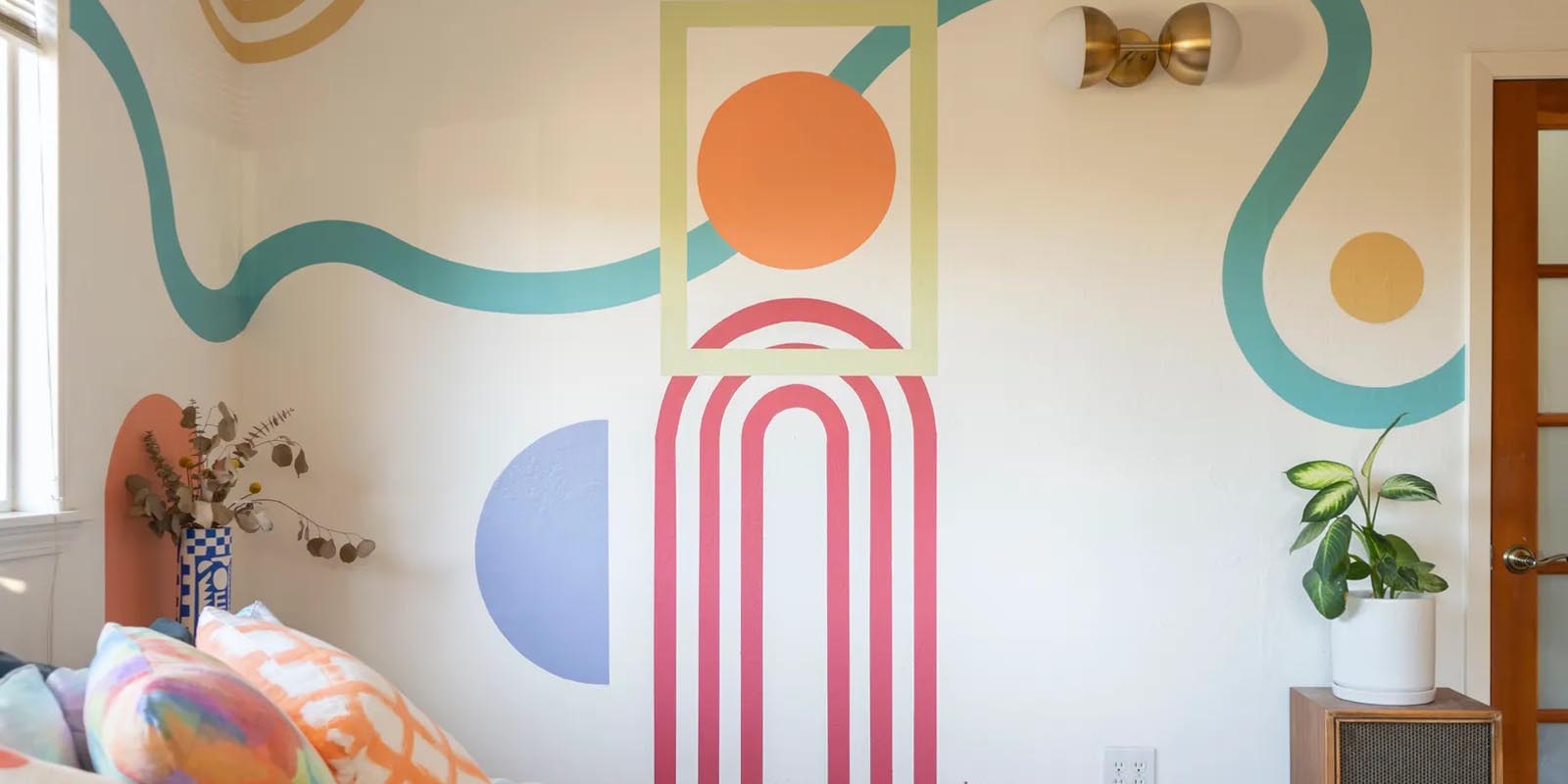Excessive clutter is often a symptom and a cause of stress and can affect every facet of your life, from the time it takes you to do things to your finances and your overall enjoyment of life. Clutter can distract you, weigh you down, and in general it invites chaos into your life. Often times, however, tackling the clutter can seem an insurmountable task if you don’t know where or how to start. By devoting a little of your time to getting rid of the clutter in your life and maintaining things relatively clutter-free , you’ll reap the rewards of pleasing living areas, reduced stress, and a more organized and productive existence.
The best way to tackle the decluttering of your home, your work space, and your life is to take things one small step at a time. Combined, small steps will lead to big improvements that will be easier to maintain over the long-run. Here is a blueprint of how to start tackling that clutter and enjoying a less stressful life:
Your Work Area
If you want to be more productive and focused in your work, getting the clutter out of your work area is essential.
- Start with your desk. Clear everything off the top of it and take everything out of the drawers. Assemble the items in piles on the floor. Clean and wipe down your desk, and marvel at how pretty and clean it looks. Sort through all of the “stuff” that was both in and on your desk. Toss out as much as possible a relatively small amount. Once you’ve weeded things out, it’s time to sort through the remains. Set up a basic alphabetical filing system with a folder for each project or client. Keep your office supplies and other items in designated drawers. Keep flat surfaces clear, and have an inbox for all incoming papers. When the papers come in, sort them each day – toss, delegate, do immediately, or file simply file all documents, but whatever you do, DO NOT KEEP THEM ON TOP OF YOUR DESK. All you want on the surface of your desk is your phone, computer, inbox, and maybe a special photo in addition to the documents you are working with at the moment.
- Declutter your computer. Get rid of files and programs on your computer that you don’t need. Get rid of most or all of the icons on your desktop. They not only slow down your computer, but they also create visual clutter. There are better ways of accessing your information. Regularly purge old, unused files. If organization is not your thing, utilize a program such as Google Desktop to search for your files when you need them.
- Then move on to information. Information in itself can become overwhelming when you have too much of it, and this is called information clutter. Instead of letting information take over your life, set limits. Reduce the number of things that you read each day and get rid of things from your RSS feed. Chuck those magazine subscriptions, and reduce your consumption of news and television. I’m not suggesting that you cut yourself off from the world, just that setting some boundaries will help. Instead of letting information, even the kind that friends share on Facebook, take over your life, control how and when you receive it by limiting what you read.
Your Home
Outside of work, home is where many of a bulk of our time. So it’s no wonder that a messy house can add to daily stress.
- Simply your rooms. If your rooms are too cluttered, you’ll want to simplify them. Start by clearing off anything that is on the floors. Throw out or donate unused things. After clearing the floor, move to flat surfaces such as countertops, shelves, tops of dressers, etc. Clear them as much as possible, and then move onto furniture. Consider if you need everything. Sort things in piles – toss, donate, or keep. Organize everything that you’ve decided to keep into drawers, cabinets, and closets, keeping them out of sight, but still neatly organized and uncluttered. Do this one room at a time.
- Tackle the closets. Closets are a great place to store things that you don’t want out in the open, and can easily become a place where you shove things just to keep them out of view.Go through your closets – take everything out, clean it, and toss, donate as much as you can. Decided a specific place to store anything you decide to keep. Keep only the things that you love and use frequently.
- Clean out your drawers. Drawers are prime place for things to get shoved into. Empty out your drawers, and sorting them by whether you’re keeping, tossing, or donating them.
Your Life
Decluttering your work area and your home are great ways to start reducing the clutter and stress in your life, but there’s still more than you can do.
- Reduce your commitments. Often times, our lives are too cluttered with all of the things that we need to do at home, work, school, in our religious or civic lives, with friends and family, with hobbies, and so on. Take a look at each area of your life and write down all of your commitments. Seeing it all written down can be quite an eye-opening experience, as well as overwhelming. Another way to reduce your commitments is to identify a few that you truly love, and get rid of the rest. Learn how to say no and decline offers. If you eliminate the things that don’t bring you joy or value, you’ll have more time for the things that you love.
- Reconsider your routines. Many of us do not have any set routines in our daily lives, and simply tackle our obligations, chores, and daily tasks haphazardly. Without structure, it can lead to chaotic days and a drop in productivity. Instead, batch tasks together. It’s helpful to write down all of your weekly and daily obligations, chores, and tasks, and then plan out daily and weekly routines. Hang it up where you can see it and try to follow it.
How to Maintain Order over the Long-Term
Once you’ve successfully decluttered, whether it be one area or all the areas mentioned above, clutter will inevitably begin to creep back into your life. You must be vigilant in weeding it out on a regular basis, or it will just take over your life again.
- Set up a system to keep clutter in check. Examine the way that you do things and how things make their way into your life, and consider whether you can put together a simple system for everything, from your laundry to work projects and email. Write down your systems step-by-step and try to follow them as best as you can. Follow your systems and you’ll keep the clutter minimized.
- Don’t slack off. It’s easy to put things off for another day, but it’ll save you headaches in the long-run if you deal with things immediately. Throw it out, donate it, or keep it and put it in a designated area.












